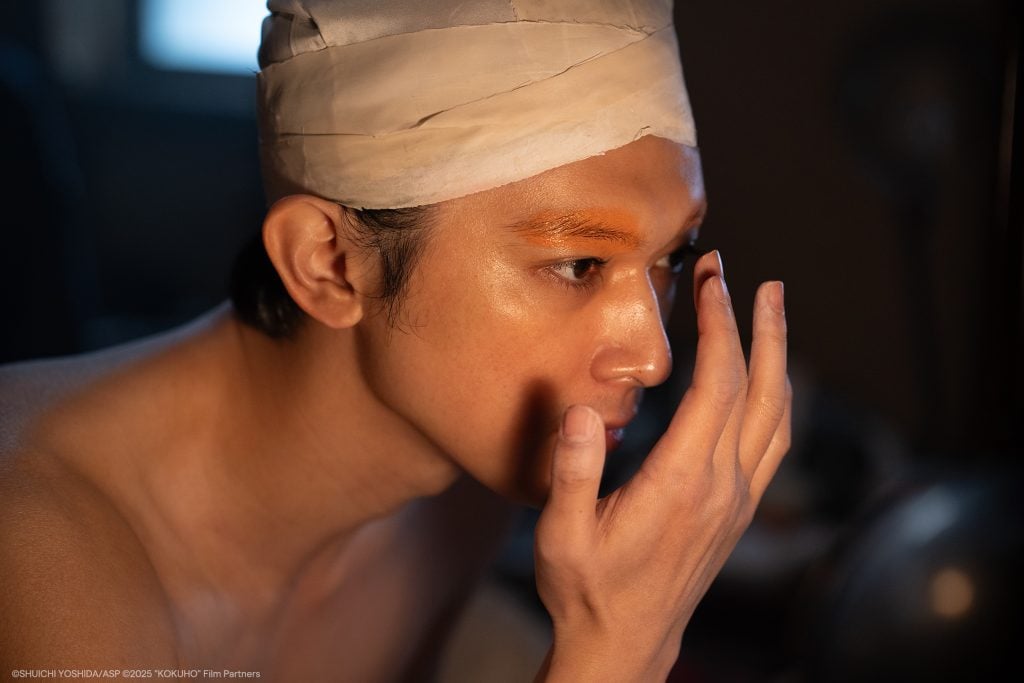Lee Sang-il’s newest film, Kokuho, is an all-encompassing epic story that details the decades-long career of an illustrious kabuki actor. Based on the novel of the same name, it is powerfully acted and captivates every corner of our senses. Clocking in at nearly 3 hours, it showcases the hard-fought journey it takes to become the best of the best. Floating somewhere between a dream-like experience with theatrical pieces and tear-jerking drama with its underdog story, Kokuho makes a strong impression as Japan’s entry for the upcoming Academy Awards.
As Kokuho opens, the film immediately transports audiences into a world steeped in traditions. Taking place in post-war Japan, the film highlights a family embedded in the Yakuza. Based on a novel of the same name by Shuichi Yoshida, it shows the violent end to Kikuo Tachibana’s (Ryo Yoshizawa later in his life and Soya Kurokawa as the younger) life as he once knew it. Barely able to bask in the praise from his family and onlookers after his first successful performance on stage, his family is torn apart, leaving him an orphan. Luckily for Kikuo, within the audience is Hanai Hanjiro II (Ken Watanabe), a renowned kabuki actor who sees a spark within him.
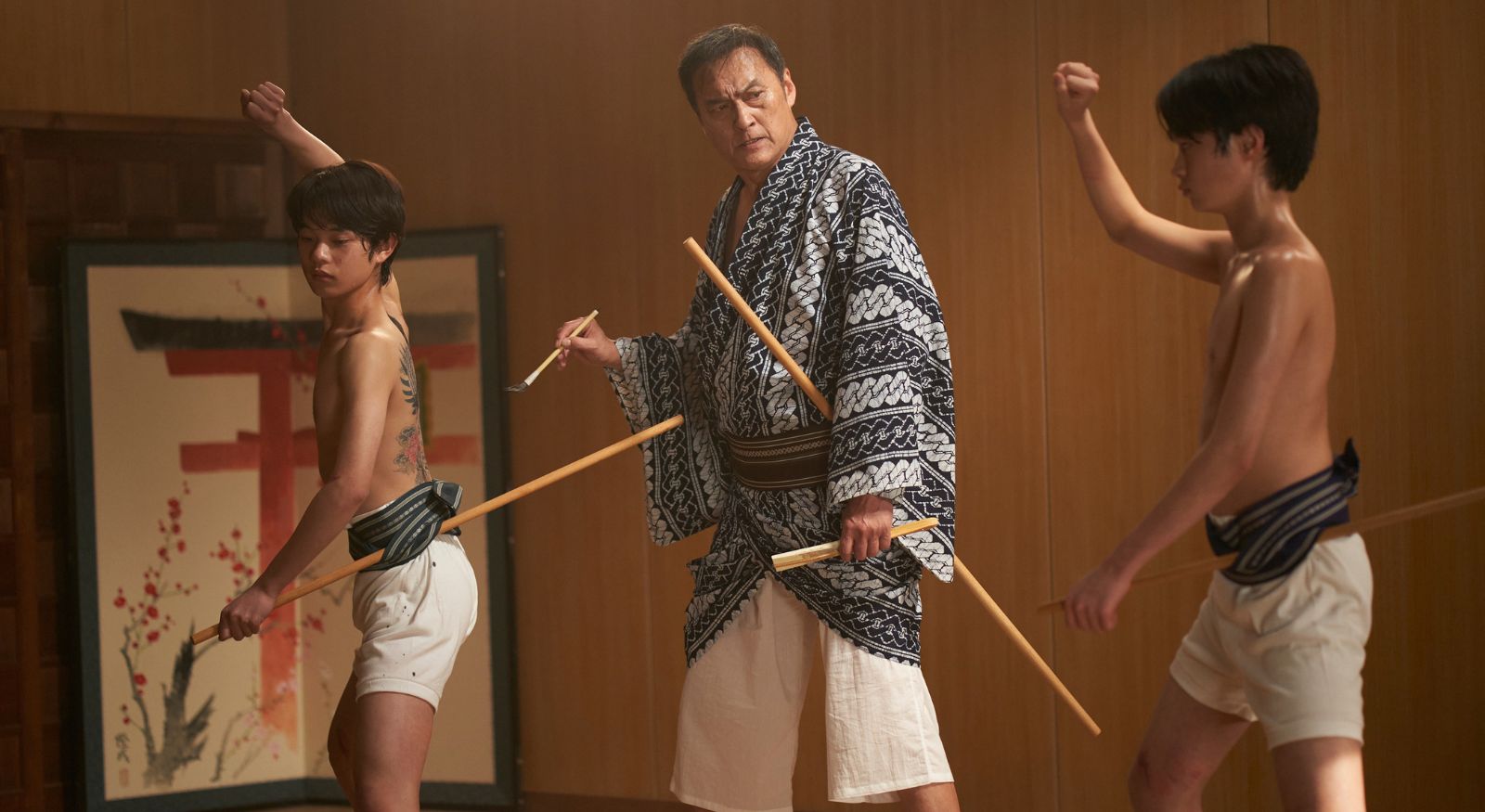
As Kikuo now walks through life as the survivor of his family, his training in kabuki acting starts soon after he becomes an orphan. His journey to becoming a kabuki actor takes flight when he moves to Osaka to train under Hanai, an honor to any young hopeful pupil. Under his mentorship, Kikuo goes through brutal training alongside Hanai’s son, Shunsuke Ōgaki (Ryusei Yokohama). While Kikuo shows a natural-born talent, making his training stand out, Shunsuke starts following in his father’s footsteps only as a formality.
Shunsuke is less fervent over kabuki acting than Kikuo, making his training much more painful. And it solidifies their relationship; their younger years develop a bond between them, especially from the physical corrections they get at the hands of Hanai. When a move isn’t executed in perfect form, the young boys are struck until their bodies memorize the form of each intricate move. One moment that stands out in their training has both pupils dripping in sweat, standing in a pose for seemingly hours. As they struggle to hold their muscles in form, Shunsuke and Kikuo allow themselves a few moments to be young boys, giggling in secret with one another—a time that, as their relationship grows into adulthood, changes drastically.
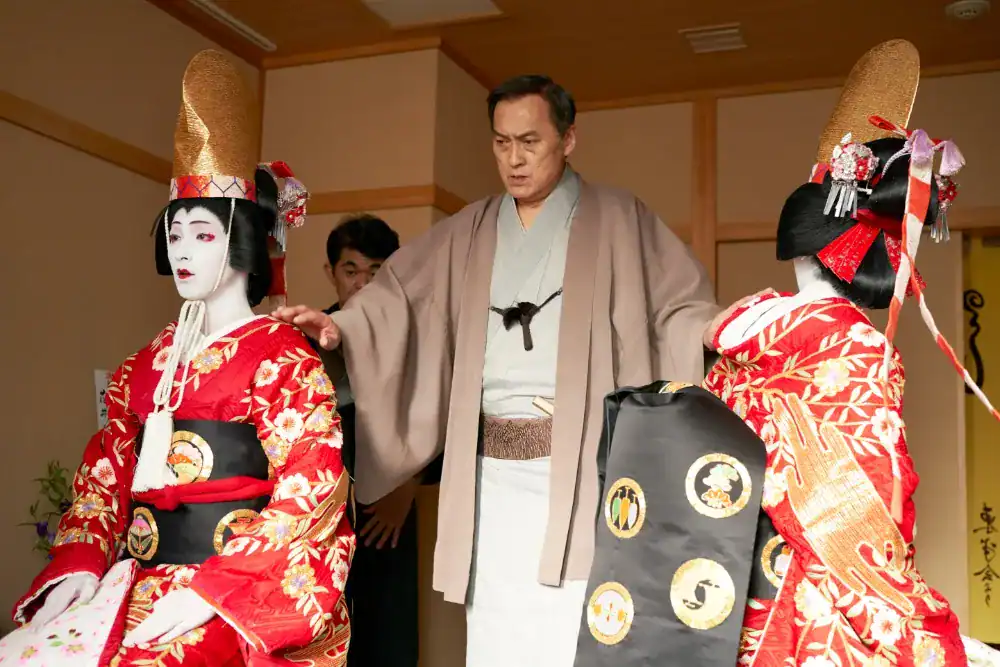
The importance of keeping the lineage of kabuki actors cannot be understated, and though the film doesn’t explicitly have a villain, the presence of Shunsuke in Kikuo’s life as he ages seems more like an obstacle than a colleague. The established home of Hanai should fall to Shunsuke when it’s time for him to take over, and it’s a role he has been preparing for essentially his entire life. But when Kikuo begins to outshine him is where Kokuho’s conflict is at its most gripping. The film gives the two young mentees every opportunity to dislike one another, and at times it’s easier to cheer for one than the other, but there’s a deep sadness that can’t be ignored in Shunsuke. And when Hanai is warmer toward Kikuo, even making decisions that shock those in his inner circle, it leaves a lingering impact on the film.
While watching Kokuho, it’s easy to feel overwhelmed by the film’s runtime; each new time jump offers new emotional highs and lows for not just Kikuo but also Shunsuke. Sang-il and screenwriter Satoko Okudera don’t shy away from showing the sacrifices that have to be made in order to claim the title of best of the best. Kabuki acting demands a heavy price, not only physically but mentally, and at the cost of a personal life as well. While in their roles, real-life relationships are often ignored, creating heartbreaking rifts in the lives of these actors. As Kikuo rises to fame, he loses touch with those close to him, and as audiences get to know Shunsuke, it’s apparent that his father has an abrasive relationship with him. It’s captivating to witness during their onstage moments, seeing the beauty of their work that demands so much of its subject. With each move hit with precision, the cost behind the scenes is immeasurable.
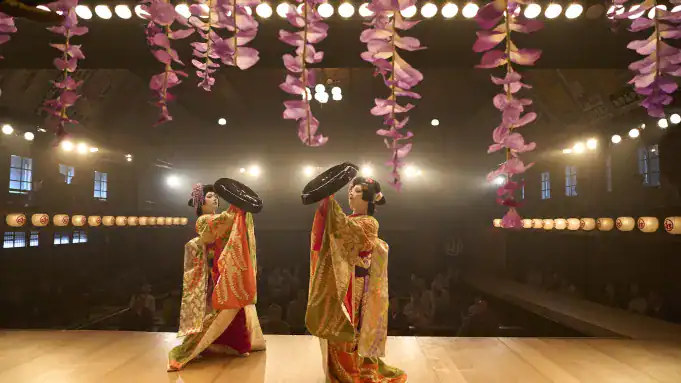
Some of the best acting of the year is held within Kokuho, with each actor playing both Kikuo and Shunsuke giving not just an impressive physical performance but a deeply moving one. Being a kabuki actor is a strenuous life cycle; each actor captures how appealing it is to the young pupils, while also showing how much anxiety the now established men go through prior to taking the stage. And even when the more mature versions of the characters do much more of the onstage performances, Kurokawa and Koshiyama establish the rivalry between Kikuo and Shunsuke that spans decades admirably. While Kurokawa truly captures the outsider who seeks acceptance with Kikuo, Yoshizawa equally puts on display the determination and sacrifice it takes to be on top.
Kabuki acting is truly a wonder to experience from an audience perspective, and for those who don’t know what happens behind the scenes, it comes across as a beautiful production. A mixture of intricate costumes, bold makeup, and enriching drama, it’s easy to get swept up in the grandeur of it all. And in the film, it’s an experience that is dually stunning, but also, knowing the process of how the performances came to be, it can be at times grueling and anxiety-inducing. There’s no room for errors, so when one does occur, it knocks the wind out of the pacing, and the film is better for it. Each new performance is intoxicating, and it’s where Kokuho‘s visuals are the most striking. And through the lens of Sofian El Fani’s cinematography, each emotional moment is allowed plenty of time to set in with his intimate close-ups during each performance.
For someone who knew very little about this aspect of traditional Japanese art in the form of kabuki, Kokuho does a tremendous job of showing the pain behind powerful art—an epic in all meanings of the word.
Kokuho is currently playing in select theaters in Los Angeles courtesy of GKIDS. The film will expand to New York on November 21st, with additional markets to follow. The film is Japan’s entry for Best International Feature at the 2026 Academy Awards.
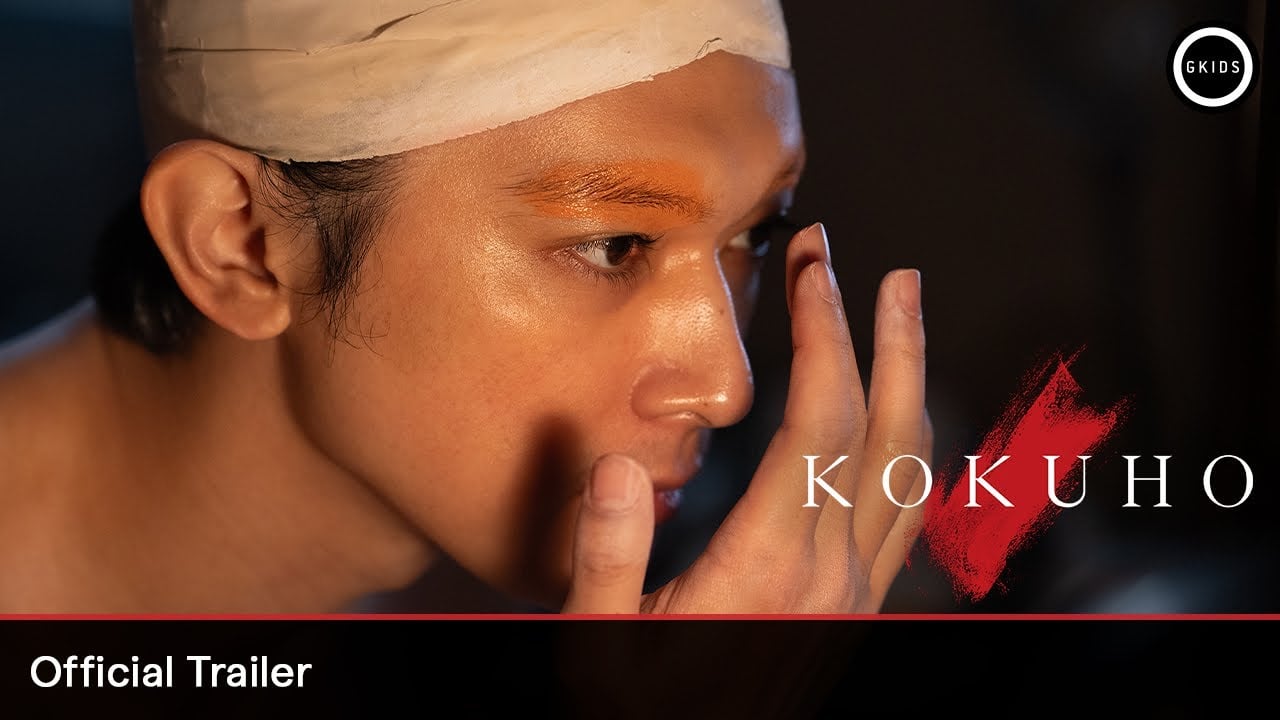
Floating somewhere between a dream-like experience with theatrical pieces and tear-jerking drama with its underdog story, Kokuho makes a strong impression as Japan's entry for the upcoming Academy Awards.
-
9
-
User Ratings (3 Votes)
7


